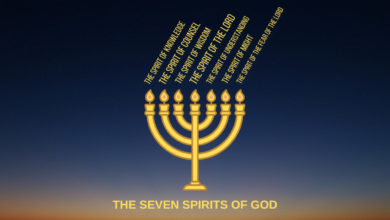What does the Bible say about Forgiveness? How many times should we forgive?

Forgiveness is one of the cornerstones of Christianity, emphasized in both the Old Testament and by Jesus in His teachings. Yet, many believers today find it difficult to forgive others and let go of their transgressions. But, what does the Word of God say about forgiveness? And how often should we forgive others according to the Bible? This and more will be explored in this article.
What is Forgiveness in the Bible?
The concept of forgiveness is well-understood, but it is often not executed properly or not executed at all. This is why Jesus made forgiveness a central point in His teachings, as we, as humans (before being born again), tend to hold onto the wrongs of others while neglecting our own faults. Thus, Jesus said in the Bible:
And why beholdest thou the mote that is in thy brother’s eye, but considerest not the beam that is in thine own eye? Or how wilt thou say to thy brother, Let me pull out the mote out of thine eye; and, behold, a beam is in thine own eye? Thou hypocrite, first cast out the beam out of thine own eye, and then shalt thou see clearly to cast out the mote out of thy brother’s eye. (Matthew 7:3-5)
The Bible continually reminds us that we all need forgiveness, and none of us has earned it on our own. Therefore, it makes no sense to compare our transgressions with those of others.
For by grace are ye saved through faith; and that not of yourselves: it is the gift of God: Not of works, lest any man should boast. (Ephesians 2:9)
This is particularly evident when reading the book of Romans, which states that all have fallen short of the glory of God, and therefore, all need forgiveness according to the Bible.
For all have sinned, and come short of the glory of God; Being justified freely by his grace through the redemption that is in Christ Jesus. (Romans 3:23-24)
How often should we forgive according to the Bible?
People find various reasons to be upset with others, often saying things like, “I’ve forgiven too many times.” But according to the Bible, how often should we forgive? This question was also asked by Simon Peter to Jesus:
Then came Peter to him, and said, Lord, how oft shall my brother sin against me, and I forgive him? till seven times? Jesus saith unto him, I say not unto thee, Until seven times: but, Until seventy times seven. (Matthew 18:21-22)
As seen in Jesus’ response, the frequency of forgiveness should be quite high. However, Jesus’ answer is not merely a mathematical calculation, indicating the point at which forgiveness should cease. Rather, He sets an example with the figure of “seventy times seven” to emphasize that we should forgive others until their repentance is complete.
We must forgive others to be forgiven by God
For those who might think this is too much, they should consider the number of their own sins against God and their fellow human beings and try to count them. Even if they only counted the sins they were aware of, the number would already be overwhelming. Yet, even though God knows all our errors, He shows us a way to obtain forgiveness.
Apart from confessing our sins according to the Bible, God gives us clear guidance on how to obtain His forgiveness. That is by forgiving others their sins. Jesus places significant emphasis on this fact in the New Testament.
For if ye forgive men their trespasses, your heavenly Father will also forgive you: But if ye forgive not men their trespasses, neither will your Father forgive your trespasses. (Matthew 6:14-15)
And forgive us our debts, as we forgive our debtors. (Matthew 6:12)
Jesus also tells a parable in the New Testament to underscore this point:
Therefore is the kingdom of heaven likened unto a certain king, which would take account of his servants. And when he had begun to reckon, one was brought unto him, which owed him ten thousand talents. But forasmuch as he had not to pay, his lord commanded him to be sold, and his wife, and children, and all that he had, and payment to be made. The servant therefore fell down, and worshipped him, saying, Lord, have patience with me, and I will pay thee all. Then the lord of that servant was moved with compassion, and loosed him, and forgave him the debt. But the same servant went out, and found one of his fellowservants, which owed him a hundred pence: and he laid hands on him and took him by the throat, saying, Pay me that thou owest. And his fellowservant fell down at his feet, and besought him, saying, Have patience with me, and I will pay thee all. And he would not: but went and cast him into prison until he should pay the debt. So when his fellowservants saw what was done, they were very sorry, and came and told unto their lord all that was done. Then his lord, after that he had called him, said unto him, O thou wicked servant, I forgave thee all that debt because thou desiredst me: Shouldest not thou also have had compassion on thy fellowservant, even as I had pity on thee? And his lord was wroth, and delivered him to the tormentors, till he should pay all that was due unto him. So likewise shall my heavenly Father do also unto you if ye from your hearts forgive not every one his brother their trespasses. (Matthew 18:23-35)
Paul also places great emphasis on forgiveness:
Forbearing one another, and forgiving one another, if any man have a quarrel against any: even as Christ forgave you, so also do ye. (Colossians 3:13)
We should forgive and seek peace with others before praying to God
The importance of forgiveness in the Bible becomes even more apparent when examining the following verses. The Bible doesn’t just say we should forgive our fellow humans, but it also says we should not even approach God in prayer if we haven’t reconciled with them.
Therefore, if thou bring thy gift to the altar, and there rememberest that thy brother hath ought against thee, Leave there thy gift before the altar, and go thy way; first be reconciled to thy brother, and then come and offer thy gift. (Matthew 5:23)
And when ye stand praying, forgive, if ye have ought against any: that your Father also which is in heaven may forgive you your trespasses. But if ye do not forgive, neither will your Father which is in heaven forgive your trespasses. (Mark 11:25-26)
Can all sins be forgiven according to the Bible?
Wherefore I say unto you, All manner of sin and blasphemy shall be forgiven unto men: but the blasphemy against the Holy Ghost shall not be forgiven unto men. (Matthew 12:31)
The Jews answered him, saying, For a good work we stone thee not; but for blasphemy, and because that thou, being a man, makest thyself God. Jesus answered them, Is it not written in your law, I said, Ye are gods? If he called them gods, unto whom the word of God came, and the scripture cannot be broken; Say ye of him, whom the Father hath sanctified, and sent into the world, Thou blasphemest; because I said, I am the Son of God? (John 10:33-36)
The following example in the New Testament illustrates the severity of this sin through its consequences:
But a certain man named Ananias, with Sapphira his wife, sold a possession, And kept back part of the price, his wife also being privy to it, and brought a certain part and laid it at the apostles’ feet. But Peter said, Ananias, why hath Satan filled thine heart to lie to the Holy Ghost, and to keep back part of the price of the land? Whiles it remained, was it not thine own? and after it was sold, was it not in thine own power? why hast thou conceived this thing in thine heart? thou hast not lied unto men, but unto God. And Ananias, hearing these words, fell down, and gave up the ghost: and great fear came on all them that heard these things. (Acts 5:1-5)
Forgiveness in the Old Testament – Yom Kippur (the Day of Atonement)
Forgiveness is not a novelty of the New Testament, as in the Old Testament, God paved the way for forgiveness for the Israelites. The Bible says that He is a merciful God who forgives our transgressions and remembers them no more.
For if ye turn again unto the Lord, your brethren and your children shall find compassion before them that lead them captive, so that they shall come again into this land: for the Lord your God is gracious and merciful, and will not turn away his face from you, if ye return unto him. (2 Chronicles 30:9)
Who is a God like unto thee, that pardoneth iniquity, and passeth by the transgression of the remnant of his heritage? he retaineth not his anger forever, because he delighteth in mercy. (Micah 7:18)
I acknowledged my sin unto thee, and mine iniquity have I not hid. I said, I will confess my transgressions unto the Lord, and thou forgavest the iniquity of my sin. (Psalm 32:5)
Rend your heart and not your garments, and turn unto the Lord your God: for he is gracious and merciful, slow to anger, and of great kindness, and repenteth him of the evil. (Joel 2:13)
Come now, and let us reason together, saith the Lord: though your sins be as scarlet, they shall be as white as snow; though they be red like crimson, they shall be as wool. (Isaiah 1:18)
Even Moses, in addition to giving the people God’s commandments, provided a way for them to obtain forgiveness when they broke those commandments.
And it shall be, when he shall be guilty in one of these things, that he shall confess that he hath sinned in that thing: And he shall bring his trespass offering unto the Lord for his sin which he hath sinned, a female from the flock, a lamb or a kid of the goats, for a sin offering; and the priest shall make an atonement for him concerning his sin. (Leviticus 5:5-6)
God has not only provided a way for individual cases of forgiveness but also instituted a special day, Yom Kippur, which means the Day of Atonement, during which people can obtain forgiveness for all their past sins. This day is an everlasting ordinance according to the Bible.
And this shall be a statute forever unto you: that in the seventh month, on the tenth day of the month, ye shall afflict your souls and do no work at all, whether it be one of your country or a stranger that sojourneth among you. For on that day shall the priest make an atonement for you, to cleanse you, that ye may be clean from all your sins before the Lord. (Leviticus 16:29-34)
Jesus is the fulfillment of Forgiveness
Now, some may wonder how this relates to our Lord and Messiah, Jesus of Nazareth, as we are in a New Covenant.
The answer to this question is quite a lot. Today, it is no longer Aaron and his descendants who make atonement for us as high priests. Instead, it is our Messiah Jesus. He is not only our High Priest and mediator, but He also replaces the sacrificial lamb that was slain for the forgiveness of our sins, bearing all our sins.
My little children, these things write I unto you, that ye sin not. And if any man sin, we have an advocate with the Father, Jesus Christ the righteous: And he is the propitiation for our sins: and not for ours only, but also for the sins of the whole world. (1 John 2:1-2)
Whither the forerunner is for us entered, even Jesus, made a high priest forever after the order of Melchizedek. (Hebrews 6:20)
So, on this special day (Yom Kippur or the Day of Atonement), we demonstrate our humility to God and place our trust in our High Priest, Jesus, who, on our behalf, makes atonement before God instead of the Levitical priest.
And all things are of God, who hath reconciled us to himself by Jesus Christ, and hath given to us the ministry of reconciliation; To wit, that God was in Christ, reconciling the world unto himself, not imputing their trespasses unto them, and hath committed unto us the word of reconciliation. (2 Corinthians 5:18-19)
For all have sinned, and come short of the glory of God; Being justified freely by his grace through the redemption that is in Christ Jesus: Whom God hath set forth to be a propitiation through faith in his blood, to declare his righteousness for the remission of sins that are past, through the forbearance of God; To declare, I say, at this time his righteousness: that he might be just, and the justifier of him which believeth in Jesus. (Romans 3:23-26)
Forgiveness is not a license to sin
After all that we have learned about forgiveness in the Bible, it should still be clear that forgiveness is not a license to sin. In both the Old and New Testaments, genuine repentance and true repentance for transgressions are prerequisites for forgiveness and for claiming the benefits of the sacrificial Lamb, Jesus.
Purge out therefore the old leaven, that ye may be a new lump, as ye are unleavened. For even Christ our passover is sacrificed for us: Therefore let us keep the feast, not with old leaven, neither with the leaven of malice and wickedness; but with the unleavened bread of sincerity and truth. (1 Corinthians 5:7-9)
For if we sin wilfully after that we have received the knowledge of the truth, there remaineth no more sacrifice for sins, But a certain fearful looking for of judgment and fiery indignation, which shall devour the adversaries. He that despised Moses’ law died without mercy under two or three witnesses: Of how much sorer punishment, suppose ye, shall he be thought worthy, who hath trodden under foot the Son of God, and hath counted the blood of the covenant, wherewith he was sanctified, an unholy thing, and hath done despite unto the Spirit of grace? (Hebrews 10:26-29)
For there are certain men crept in unawares, who were before of old ordained to this condemnation, ungodly men, turning the grace of our God into lasciviousness, and denying the only Lord God, and our Lord Jesus Christ. (Jude 1:4)
Conclusion – What does the Bible say about Forgiveness?
In summary, we learn from the Bible that we should always forgive our fellow humans, especially when we hope for God to forgive us and hear our prayers. The only exception is the blasphemy of the Holy Spirit, which cannot be forgiven. Both the Old and New Testaments make it clear that God is merciful and delights in forgiveness. He even established a special day, Yom Kippur (the Day of Atonement), to emphasize its significance. Through our Lord Jesus, we have come to understand its true meaning, as He serves as our High Priest and allows us to obtain forgiveness in the present age.
And all things are of God, who hath reconciled us to himself by Jesus Christ, and hath given to us the ministry of reconciliation; To wit, that God was in Christ, reconciling the world unto himself, not imputing their trespasses unto them, and hath committed unto us the word of reconciliation. Now then we are ambassadors for Christ, as though God did beseech you by us: we pray you in Christ’s stead, be ye reconciled to God. (2 Corinthians 5:18-20)
For God sent not his Son into the world to condemn the world, but that the world through him might be saved. (John 3:17)
If you want to find out more about forgiveness, you might want to read this article as well: Father, forgive them; for they know not what they do
If you liked the article, take a look at our Facebook Page.




